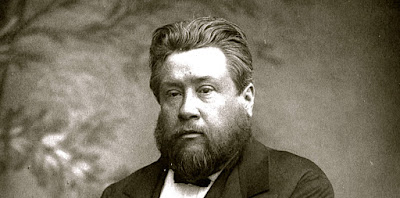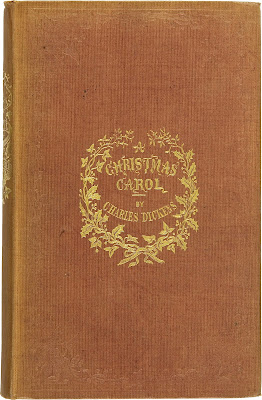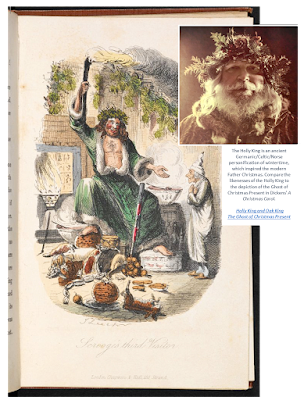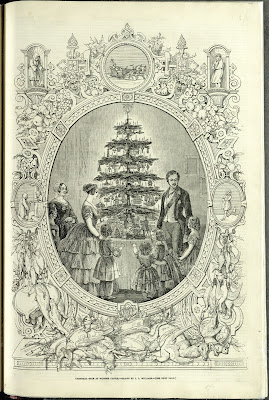A Time of Transition
hol·i·day /ˈhäləˌdā/
Origin: Old English hāligdæg ‘holy day’
Why do we do the things we do?
In our search for truth, it is
good to question every tradition we have come to accept as normal in our
society, lest we fall short of the will of God and see the proverbial writing
on the wall:
Mene
mene tekel uparshin
(You have been weighed in the balance and found wanting)
Daniel 5:25
In this exposition we will
examine the historical record to see what theologians and historians wrote
about the holiday season. We will observe both ancient and more modern sources
in order to rightly divide the truth regarding the origins of the holidays
billions of people have come to know and love. Let us do this so that we may
prove the perfect, acceptable will of God.
I beseech you therefore, brethren, by the mercies of God,
that you present your bodies a living sacrifice, holy, acceptable to God, which
is your reasonable service. And do not be conformed to this world, but be
transformed by the renewing of your mind, that you may prove what is that good and acceptable and perfect
will of God. Romans 12:1-2).
At the same time, we will
examine some of the arguments people use to justify the celebration of the
holiday season to see if they hold up to scrutiny. Let us test all things as
Paul tells us to in 1 Thessalonians 5:21:
Test all things; hold fast what is good. Abstain from every
form of evil.
For millennia, the winter solstice
has repeatedly been associated with heavy drinking, obnoxious revelries and
lewd behavior. This was in part due to pagan religious beliefs about that
particular time of year. Lucian, a mid-2nd century writer writes as Saturn
in the first person, saying to the Romans, “During My week the serious is
barred; no business allowed. Drinking, noise and games and dice, appointing of
kings and feasting of slaves, singing naked, clapping of frenzied hands, an
occasional ducking of corked faces in icy water—such are the functions over
which I preside.”
The Romans and the Greeks
considered the time leading up to the winter solstice a holiday season and this
season has persisted throughout the western world for millennia. The Puritans
refused to celebrate Christmas and wanted nothing to do with it. This is not
only because of the typically loose behavior that accompanied the winter celebrations,
but because they saw no biblical or spiritual reason to participate in them.
All throughout the late Roman Empire and Medieval Europe the holiday season was
largely considered a pagan festival and was shunned by many churches. Yet, some
still adopted them with the intention of Christianization. From the second
century all the way to today there has never been a consensus that Christmas is
even a Christian holiday. There were times when the Roman church tried to clean
up the holidays and associate them with Christian themes, yet it didn’t really
catch on at first. Centuries later, at the end of the Renaissance, the holiday
season started seeing a resurgence of popularity, but it was not a Christian
resurgence. It was secular and pagan in nature. It carried the same elements of
drunkenness and pleasure-seeking that the Roman holidays did. In the 19th
century there were considerable efforts made to clean up the bad reputation of
the holidays and create an image, a feeling and a spirit that was more
family/community oriented. This holiday season carried the added benefit of
increased commerce at a time when people tended to spend less, though one might
argue commercialism was the primary reason for the revival of the season.
There were many
failed attempts to clean up these pagan winter festivals, known primarily in
the Roman Empire by the names Saturnalia and Brumalia. These ancient days of
Brumae eventually transformed into the modern Holiday Season which encompasses Thanksgiving,
Christmas and New Year’s Day. Winter festivals have a written history as far
back as the 7th century BC in the ancient near east (probably much
further back in Egypt) to the Roman Empire in the 4th century AD,
where Christ’s nativity was declared as being the true reason for the season. In
spite of this declaration the pagan spirit persisted even through Justinian’s
ban of the holidays in the 6th century. People insisted on celebrating
these festivals the way they had been for centuries, regardless of what the
church or emperor would say, all the way through to the 11th century,
where the Eastern Byzantine Empire, known for its religious orthodoxy (especially
Constantinople), held fast to these traditions. It is no surprise that
Constantine’s prized city kept these customs alive, especially considering the
corruptions that occurred in the church during his 4th century reign.
Most Christians are taught that Constantine was a savior, a hero-type figure, who
helped to make Christianity the official religion of the Roman Empire. What
really occurred was a twisting of the Gospel truth, the rise of Dominion
Theology, encouragement towards the syncretization of religions, a suppression
of the nature and identity of Yahshua and the merging of the church with the
State (might I dub it the ApoState?). Constantine and the Council of Nicea are
subjects worthy of their own in-depth study. For now, though, let’s look at
Christmas in its more modern form. From there we can trace it back to see what
can be learned of its history. We will do this to answer the opening question
of this book: “Why do we do the things we do?” In order to remain open to an
answer you may not want to hear consider first the following verse before we
move on:
Search me, O God, and know my
heart: try me, and know my thoughts: And see if there be any wicked way in me,
and lead me in the way everlasting. Psalms 139:23-24
The Modern Resurgence of Christmas
time with the words of a well-known, 19th century preacher, Charles
Spurgeon.
We have no superstitious regard for times and seasons.
Certainly, we do not believe in the present ecclesiastical arrangement called
Christmas. First because we do not believe in any mass at all, but abhor it,
whether it be sung in Latin or in English: Secondly, because we find no
scriptural warrant whatever for observing any day as the birthday of the
Savior; and consequently, its observance is a superstition, because not
of divine authority. Superstition has fixed most positively the day of our
Savior’s birth, although there is no possibility of discovering when it
occurred… It was not till the middle of the third century that any part of
the church celebrated the birth of our Lord; and it was not till long after the
western Church had set the example, that the eastern adopted it. Because the
day is not known… Probably the fact is that the “holy” days were arranged
to fit in with the heathen festivals. We venture to assert that if there be
any day in the year of which we may be pretty sure that it was not the day on
which our Savior was born it is the 25th of December… I will neither justify
nor condemn… Regarding not the day, let us give God thanks for the gift
of His dear Son.” —C. H. Spurgeon Dec. 24, 1871 (Spurgeon,
Metropolitan Tabernacle Pulpit)
Spurgeon simplified and
condensed a lot of information in this statement. Clearly, he knew a good deal
of the history behind the Holiday Season. His sermon pointed not only to the
incarnation but to the death on the cross, for it was not the incarnation alone
that saved us. The shed blood on the cross is the focus in the epistles of the
apostles. Rarely was birth even mentioned. It was what Christ accomplished on
the cross that completed and fulfilled the good news of the Gospel. In this
sermon he didn’t condemn meditating on the incarnation of Christ, but he
certainly criticized the typical traditions that people had come to depend on
in order to enjoy Christmas. In an earlier sermon
in 1856, he said, “…though I have no respect to the religious observance of
the day, yet I love it as a family institution…” He was preaching at a time
when Europe and North America were experiencing a massive resurgence of the
Christmas holiday and I’m sure this is what prompted his exhortation as well as
his obvious apprehension towards the “holiday.”
With a fervent admonition from
such a well-respected minister as Charles Spurgeon, should we not perform our
due diligence by testing his claims about Christmas? Shouldn’t we use our
Spirit-given discernment to determine if what he is saying is the truth? If we
find the evidence is compelling, and even more, then we must face the decision
to cease celebrating these “holy days.” The fact is there is nothing holy about
them because they are not God-ordained, and they have nothing to do with the
Gospel of Yahshua Christ except what man has assigned to them. It is a shame
that most Christians have decided to ignore or reinterpret the parts of the
Bible they don’t agree with and accept a half-hearted, watered-down version of
the Gospel. Let us embrace it wholly, not shying from the cross of Christ,
which is the focal point of His life on earth.
What scares the Dickens
out of you?
published his famous novella, A Christmas Carol in Prose, Being a Ghost
Story of Christmas, known in short as A Christmas Carol. It
immediately became an overnight success. A critic named Margaret Oliphant wrote
the faintest praise of all her contemporary critics, characterizing Dickens’s
book as “the apotheosis of turkey and plum pudding,” and admitted that “it
moved us all in those days as if it had been a new gospel.” (Wikipedia,
WV
Gazette-Mail, Lithub).
Despite there being nothing Christian about the story it made its way into the
hands and homes of many Christians, nonetheless. Although the purported
inspiration of the story was Dickens’ disgust towards child labor and the
brutality of the burgeoning Industrial Revolution, the real appeal was the surface
morality of being jolly and generous during the Christmas season, as well as
shunning those who oppose the Christmas spirit. In a way, Ebenezer Scrooge was
not only a representative of the cold business class but a caricature of those
pesky Puritan types who rained on everyone’s parade. Ironically, the very
Industrial Revolution Dickens’ was railing against helped him to capitalize on his
own work, making him rich and creating an opportunity for mass consumerism that
never existed in such a wide-reaching capacity before.
If
we are addressing the irony of Dickens then let us note that Ebenezer is a name
from the Bible, seen in 1 Samuel 7:12. The Hebrew name means, “stone of help.”
The Bible says that the Israelites came against the Philistines in battle near
a city called Ebenezer. They were participating in idolatry at that time and
thought that if they brought the Ark of the Covenant into the camp surely
Yahweh would give them victory like He had done before. The Philistines
defeated them, and Israel suffered great loss, including the ark, which was
carried off by the enemy. After they realized they lost because of their
idolatry they repented. The next time they went against the Philistines Yahweh
gave them victory. You see, we cannot be idolaters and expect God to help us.
We gain victory by remaining pure and holy. If we become complacent and
undiscerning, falling into compromise and idolatry, we can’t expect God to
stand up for us. The scariest thing about this account is that the Israelites
didn’t even know they were sinning until they were defeated! How could this be
possible? They knew what Yahweh commanded them. Surely, they would know if they
were committing a grave sin. Evidently, they did not, and this was not the first
time. They fell into idolatry over and over, which led God’s hand to teach them
many hard lessons.
The takeaway for Christians is
that we cannot put Christ in something that He was not in to begin with, just as
the Israelites cannot attempt to bring the ark to a losing battle thinking God
is in that ark. The ark is a symbol of a pure heart with God’s law written
within, but they did not have pure hearts. The “stone” that helped them (being
a foreshadowing of Christ) came after they repented of their idolatry.
At some point in his life Dickens
became a Unitarian, a denomination that rejects the Trinity and the divine
nature of Christ. Unitarians also reject the doctrine of Original Sin and
instead adopt a Humanist approach to spirituality, placing an emphasis on using
reason in order to understand the Bible. These tenants eventually led to their
universal acceptance of all people, including liberal Christians, Buddhists,
Jews and neo-pagans. Humanism is the basis of humanitarianism and the
justification of works-based faith for many Christians. They think that charity
of any kind is of Christ when it is the other way around. Christ will lead you
to right charity.
Because of Dickens’ beliefs it
is no wonder that Ebenezer, the stone that helps, takes on a form that merely
looks like the author’s own conception of Christ in the story. You see, Scrooge
became more “Christ-like” by being scared out of his wits by ghosts of his
past. These ghosts persuaded him to become nice, generous and caring instead of
greedy and grumbling. While these might be commendable traits this is a very
watered-down summation of Christ’s teachings and an obvious attempt to use
Christmas as a crutch for this message. Repentance is not enough to save you.
It is making Christ Lord over your life that saves you. In this tale it is not
God or Christ leading Scrooge to repentance. It is pagan ideas, myths and
legends.
It is no wonder it is the iconic tale that defined
Christmas, a holiday that was, from its Christianized inception, aimed to unite
disparate groups of people in a common harmony. A Christmas Carol
doesn’t really have Christ in it, but it does have other elements of
spirituality, elements that are clearly pagan in nature. For example, it wasn’t
Christ that inspired Scrooge to change. It was the ghosts of Christmas past,
present and yet to come. The ghost of Christmas Present is a perfect depiction
of the Germanic Holly King, complete with symbols of firelight, life and
abundance in the midst of winter’s desolation (see illustration). Similarly,
the Ghost of Christmas Present bore a striking, purposeful resemblance to the
Grim Reaper, who is the personification of Death. The Grim Reaper has his
origins in the same symbolism of Cronos/Saturn, who was an unpleasant, elderly
man carrying a scythe and ruling over time. Father Time also shares in the same
roots and is closely associated with the old year transitioning to the new
year. It was the fear of death and leaving behind a legacy of selfishness that
finally made Scrooge decide to be more selfless. That’s humanism, not Christianity.
I think many Christians have a narrow view of paganism. Pagans have morals too.
They don’t all go around conducting sexual rituals and child sacrifices. Many
pagans would be considered very moral, humanitarian people. So, what then,
separates Christian morality from pagan? Remember, Satan comes disguised as an
angel of light (2 Corinthians 11:14). He is trying to look like Christ, who is
the light and life of the world. He wants to deceive you into thinking you are
behaving according God’s will when really, it is his will that you are doing.
Woe to those who call evil good and
good evil, who put darkness for light and light for darkness, who put bitter
for sweet and sweet for bitter. Isaiah 5:20
If Dickens understood the name
Ebenzer then perhaps the “Stone of help,” who is Christ, would have a place in
his story. If so, it would have been a much different story, but then again, it
probably wouldn’t have inspired the following generations to adopt “morally
acceptable” pagan traditions. I doubt he would have written the book at all if
that were the case. The true Gospel is not a popular message.
It is interesting to note that
Queen Victoria was a lover of Dickens’ writings. In 1848, an engraving was
published in in the Illustrated London News of a Christmas tree in
Windsor Castle surrounded by Queen Victoria, Prince Albert, their servants and
several children (see illustration). This was a depiction of an event that
actually occurred. Prince Albert brought an evergreen, called a Tannenbaum,
into the castle as part of his German heritage. This cover story’s image, along
with Dickens’ story, inspired people in both Europe and America to begin
reviving and reinventing the image and spirit of Christmas, filtering out
centuries of licentiousness, leaving the relics of things deemed good and
worthy of practice by the judgment of men, not God. Within 10 years Christmas
trees were a standard tradition in homes all across the western world.
It was not long before
Christians started trying to make Christmas about Christ, but Spurgeon was
arguing that it was not a Christian cause, that we should ignore the holiday
and be separate from the world. His Puritan counterparts from the 16th
century would wholeheartedly agree. Sure, the Puritans were often very
legalistic, but at least they had a desire for purity and godliness. I feel the
same way about such religious movements as the Anabaptists, Amish and
Mennonites. Unfortunately, most people that decide to abandon the legalism of
these denominations only wind up blanketly calling any form of religious
confrontation legalism. It’s a shame because purity doesn’t have to be
legalistic, and many times those who are being called pharisees are being
called such by the pharisees of a “new-and-improved” version of Christianity.
Charity
The “spirit of Christmas,” which stories like
A Christmas Carol promote, mean to suggest that through philanthropy one
can gain a happy, fulfilling life. Donations to charity skyrocket at this time
of year. It is easy for a Christian to justify “getting in the Christmas
spirit” because it is supposedly Christ-like to give to those in need, but are
you getting into the spirit of Christmas or is it getting into you? If the
definition of being Christ-like is charity to everyone and if Christ was a
humanitarian, why did He walk by the crippled man at the temple knowing He
could heal Him? Surely, He saw this man, who was lame from birth and was
brought to the temple daily to beg for alms. Why did He wait and let Peter heal
him?
Now Peter and John went up together to the temple at the hour
of prayer, the ninth hour. And a certain man lame
from his mother’s womb was carried, whom they laid daily at the gate of the
temple which is called Beautiful, to ask alms from those who entered the
temple; who, seeing Peter and John about to go into the temple, asked for alms.
And fixing his eyes on him, with John, Peter said, “Look at us.” So he gave
them his attention, expecting to receive something from them. Then Peter said,
“Silver and gold I do not have, but what I do have I give you: In the name of
Yahshua Christ of Nazareth, rise up and walk.” Acts 3:1–6
Yahshua went to the temple
often and surely would have seen this man. Why didn’t He heal him? Why, being
full of the grace of God and wise beyond His years as a child, did He restrict
His ministry to only three years when He could have been preaching the Gospel
and healing everyone He came across His whole life? The answer is simple.
Christ only ever did the will of the Father. If it was not God’s will that He
heal, then He did not heal.
Now as Yahshua passed by, He saw a man who was blind from
birth. And His disciples asked Him, saying, “Rabbi, who sinned, this man or his
parents, that he was born blind?”
Yahshua answered, “Neither this man nor his parents sinned,
but that the works of God should be revealed in
him.” John 9:1–5
God appointed a time for this
man to be healed, just as He did for the crippled man at the pool of Bethesda
in John 5. This man went there often to get healed, but someone always beat him
to it, because only the first person in the pool that day could get healed.
Would you think it cruel of God to allow this man to constantly get out run by
more capable men? Clearly, He had a plan for him, so who are we to rail against
God? Would we, seeing this injustice and by the works of our own hands, try to
heal this man not knowing God’s plan for him? That might not be pleasing to God
because there was a greater glory revealed by this man being healed on that
specific day. Yahshua explains why He healed Him when He did:
“My Father has been working until now, and I have been
working… the Son can do nothing of Himself, but what He sees the Father do; for
whatever He does, the Son also does in like manner… For as the Father raises
the dead and gives life to them, even so the Son gives life to whom He will.
For the Father judges no one, but has committed all judgment to the Son… For as
the Father has life in Himself, so He has granted the Son to have life in
Himself, and has given Him authority to execute judgment… I can of Myself do
nothing. As I hear, I judge; and My judgment is righteous, because I do not
seek My own will but the will of the Father who sent Me. John 5:19–30
This passage is rich in wisdom.
The Son always seeks to do the will of the Father, and because of this the
Father has granted the Son the ability to exercise His own judgement and will,
because it is perfectly in line with the Father’s will. This is because the
Father has taught His Son well and He is His perfect representative. The Son judged
the right time to heal these men because He knew the will of the Father. Just
as He could see that the blind man was not blind due to sin, He saw that there
was a time and place for His Father’s glory to be shown in his healing.
So, in light of this reality,
which is called Sabbath rest, are Christians always
supposed to be charitable? Do you get a reward for giving regardless of when or
to whom you are giving? I suppose the real question is, can we make charity
into an idol? According to Tertullian, we can. His argument is nothing less
than compelling. We can take anything good and turn it into an idol by the
works of our own hands.
The Spirit of Babylon is the
worship of humanity above God. Humanitarianism is an idea that people fall in
love with because it fits their own view of morality. People forget that God’s
morality is not their morality. When humanitarianism takes precedence over God,
you have become an idolater. Remember, Yahshua reduced the 10 Commandments to
2, saying the first is, “Love the Lord your God with all your heart,
mind, soul and strength…” and the second being, “Love your neighbor as
yourself.” The second cannot become the first. When it does you can expect
judgment to come sooner or later.
I will utter My judgments against them concerning all their
wickedness,
Because they have forsaken Me, burned incense to other gods,
And worshiped the works of their own hands.
Jeremiah 1:16
If your charity and
humanitarianism is the works of your own hands, it is worthless to God. However,
if your charity is the work of God, then it is commendable in His sight.
Knowing the difference is knowing when God is speaking to you and when you are
following the dictates of the world, which often try to imitate God.
(To Be Continued…)
Heart4God Website: http://www.heart4god.ws
Parables Blog: www.parablesblog.blogspot.com
Mailing Address:
Joseph Herrin
P.O. Box 804
Montezuma, GA 31063










0 Comments